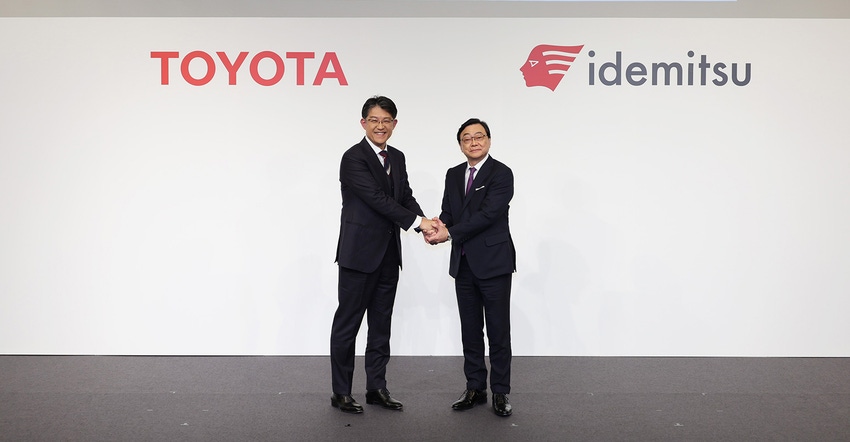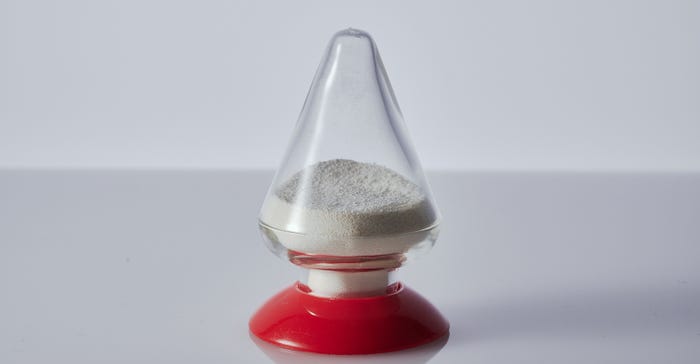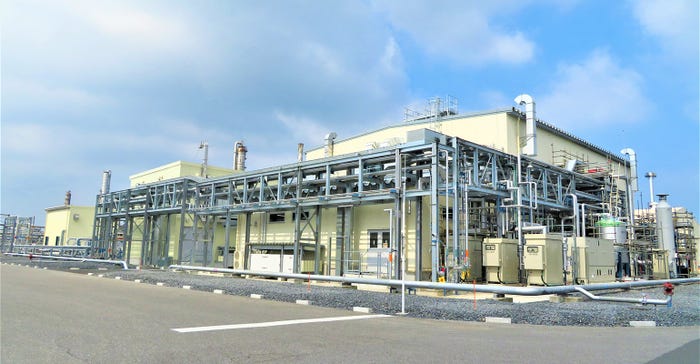Toyota & Idemitsu Partner on Solid-State Battery Production
Toyota will work with petroleum company Idemitsu to drive the mass production of solid-state batteries for electric vehicles.

Despite the growing adoption of electric vehicles (EVs), battery technology must continue to advance to become a practical and widespread mode of transportation. Solid-state batteries have the potential to address numerous limitations associated with traditional lithium-ion batteries, which are key to the sustainable evolution of transportation. This evolution is precisely what Toyota Motor Corporation and Idemitsu Kosan Co., Ltd. aim to achieve through their collaboration in commercializing solid-state batteries for battery electric vehicles (BEVs).
This announcement comes a few months after Toyota announced its decision to invest in EV technology. Idemitsu's technological expertise in manufacturing and mass-producing the solid electrolytes utilized in these batteries will reinforce Toyota's efforts to achieve the commercialization of all-solid-state batteries for BEVs.
Koji Sato, President and CEO of Toyota Motor Corporation, said, “Our two companies will combine their separate efforts to mass-produce new materials and establish a supply chain for solid electrolytes, which hold the key to the commercialization of solid-state batteries.”
Sato pointed out the importance of a solid electrolyte that boasts remarkable flexibility, strong adhesion properties, and resistance to cracking. He mentioned that Toyota and Idemitsu have developed unique crack-resistant material with high performance through extensive experimentation and a collaborative approach.
Sulfide-based solid electrolytes
According to Sato, this newfound solid electrolyte, when coupled with the expertise of the Toyota Group in cathode and anode materials as well as battery technologies, opens a promising pathway toward the realization of solid-state batteries that offer both remarkable performance and exceptional durability, marking a significant stride in the advancement of battery technology for EVs.

Shunichi Kito, the CEO of Idemitsu, explained that sulfide-based solid electrolytes—derived from sulfur components generated during petroleum product manufacturing—have great potential to overcome issues like range and charging times. Kito said: “We are confident that sulfide-based solid electrolytes are the most promising solution for battery EV issues such as cruising range and charging times.”
Details of collaboration
The following three-phase approach involves the development of sulfide solid electrolytes, large pilot facilities, and future full-scale mass production, which is a testament to both companies' commitment to realizing the potential of solid-state batteries.
Phase 1: Development of sulfide solid electrolytes and preparation for a large pilot facility
Through feedback and development support from each other on each company's technical area, both Idemitsu and Toyota will work together on creating better sulfide solid electrolytes with attention to quality, cost, and lead times, which both companies believe will realize mass-production demonstration of sulfide solid electrolytes using an Idemitsu pilot facility.

Phase 2: Mass production using a large pilot facility
Through the construction and startup of a large pilot facility, Idemitsu will promote sulfide solid electrolyte manufacture and then will obtain mass production technology.
Toyota will promote the development of all-solid-state batteries, in which sulfide solid electrolytes are used, and BEV development, in which the batteries are incorporated. Then, it will ensure market launch of BEVs with all-solid-state batteries in 2027-28.
Phase 3: Study of future full-scale mass production
Based on the results of Phase 2, both companies will study future full-scale mass production and commercialization.
The partnership between Toyota and Idemitsu exemplifies the beneficial results that occur when diverse sectors, such as the automotive and energy industries, work together with a common goal: to shape a cleaner, safer, and more sustainable future for transportation.
About the Author(s)
You May Also Like





